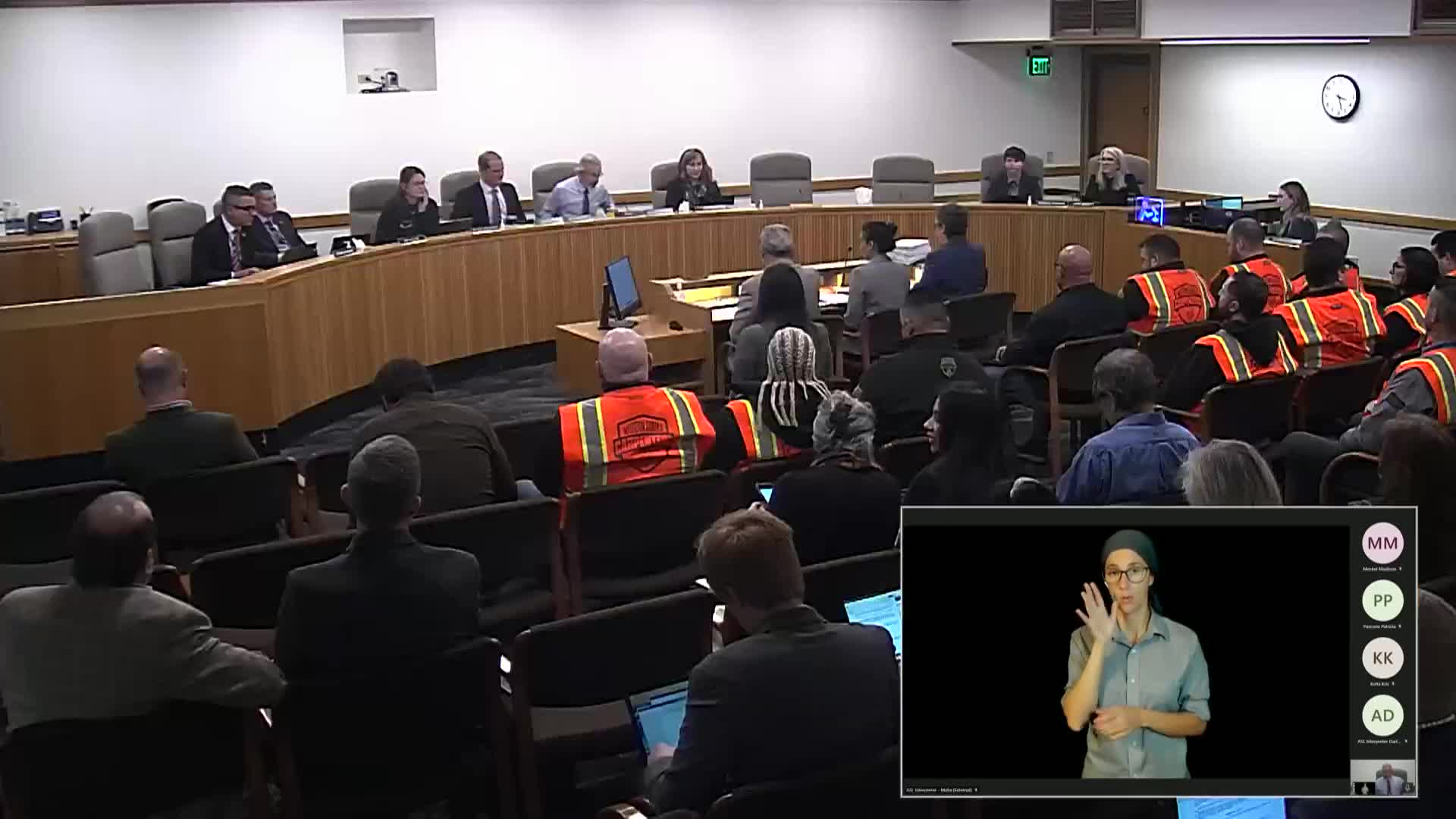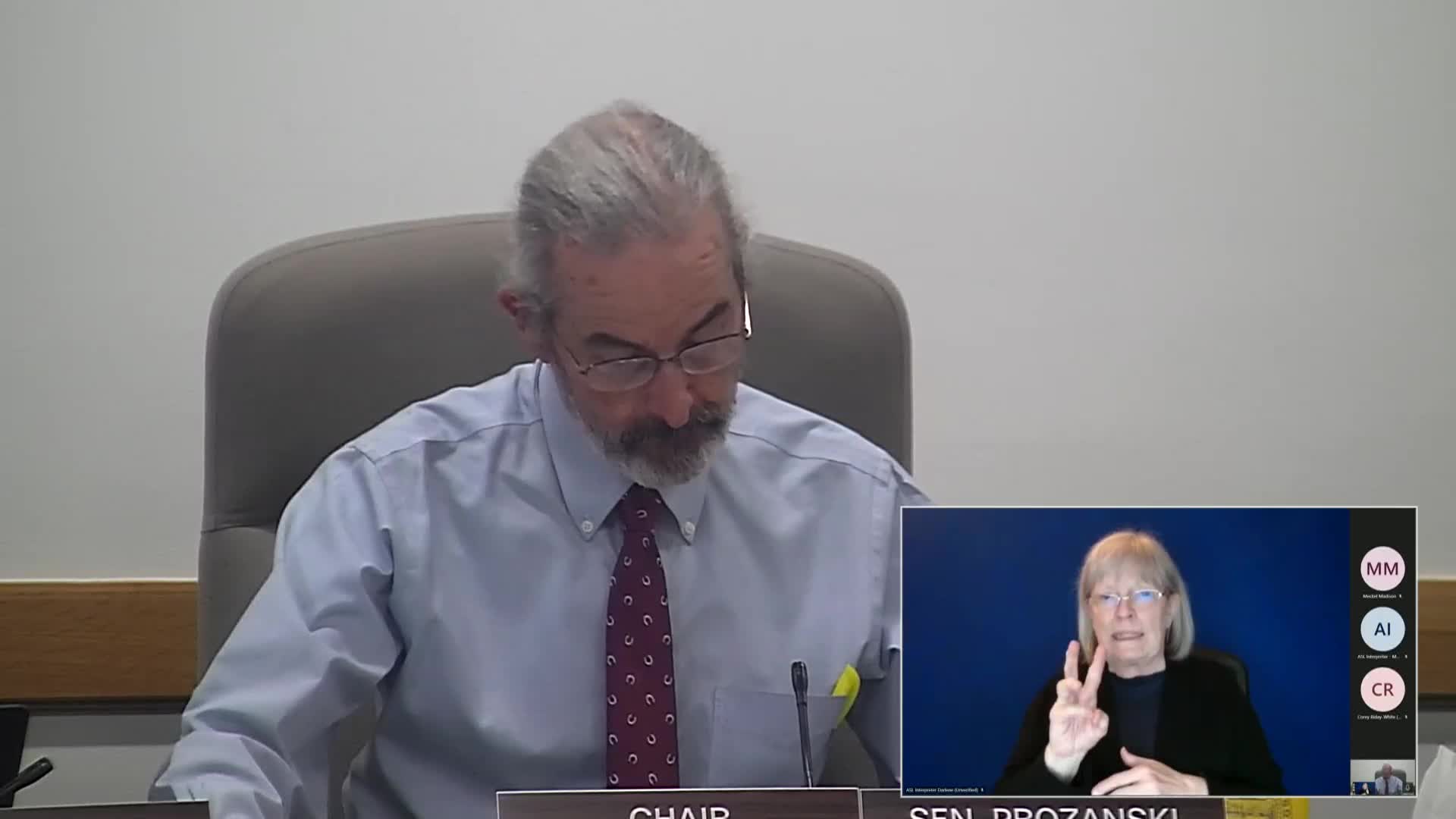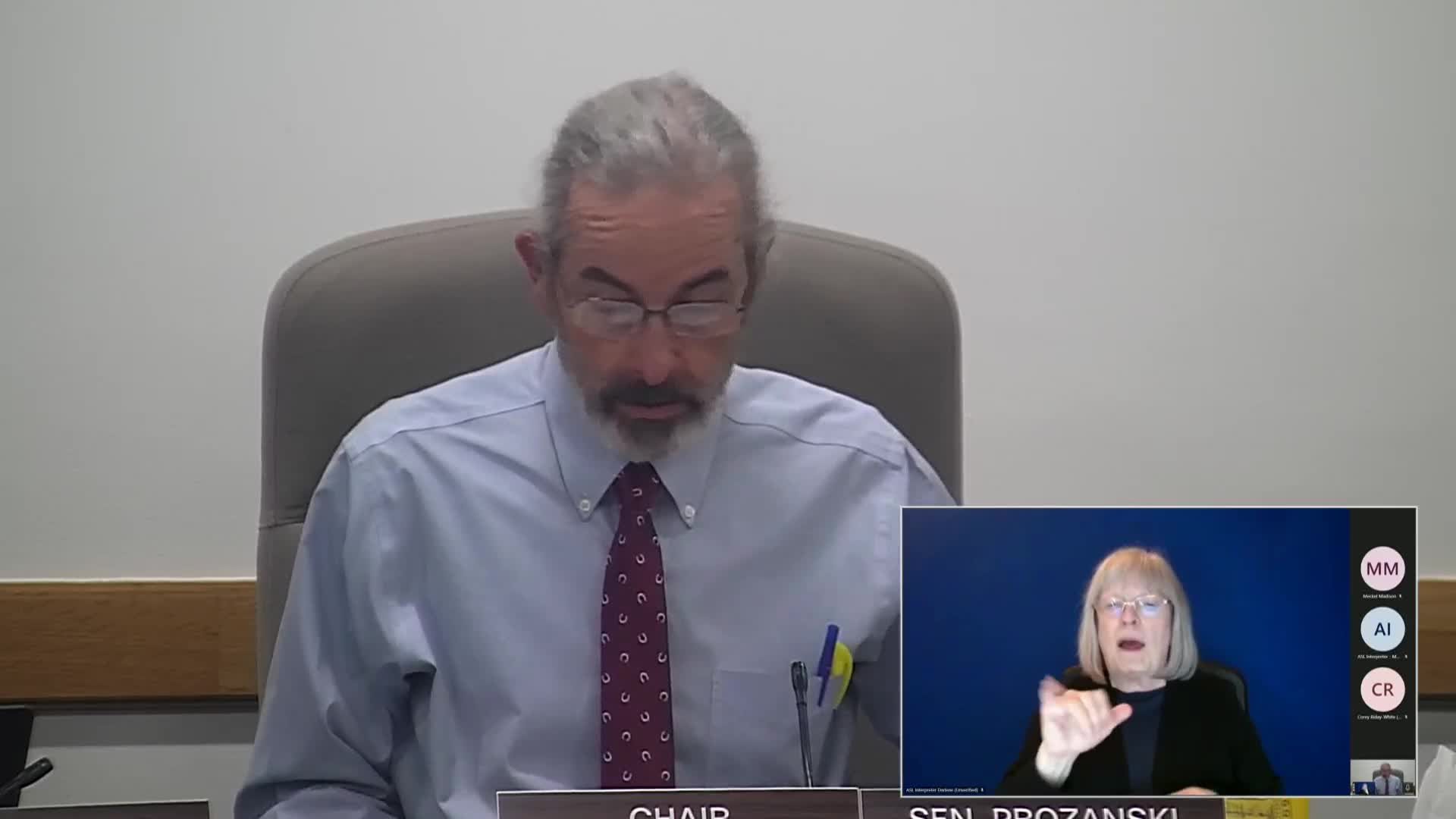Article not found
This article is no longer available. But don't worry—we've gathered other articles that discuss the same topic.

Long public hearing on SB 426 pits worker advocates and trade groups over joint liability for unpaid construction wages

Senate Judiciary hears testimony on bill to ban deceptive ‘greenwashing’ claims; opponents say language is too broad

